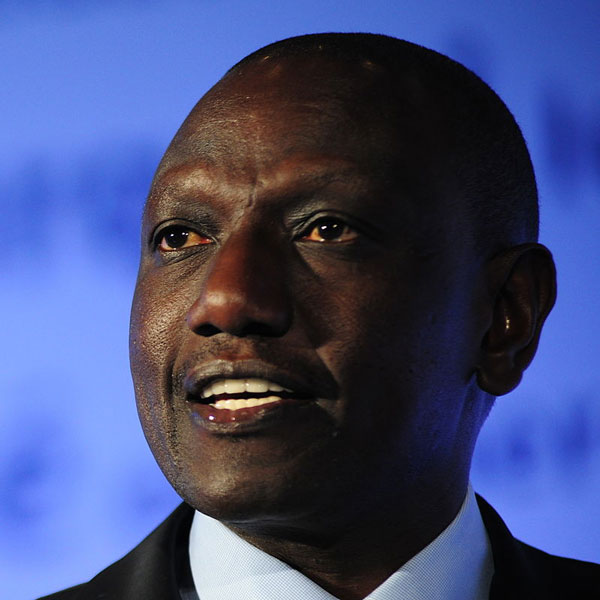In less than two months, Kenya will hold general elections, specifically on the 9th of August. Ethnic mathematics have long been a significant factor in Kenyan elections. Currently, however, it is the economy that is dominating political campaigns. Why so?
Deputy President Ruto is championing what he calls a “bottom-up” economy able to uplift the poor through easy access to capital, friendly regulation or deregulation of informal businesses. Raila Odinga, his main opponent, plans to introduce a social protection program with monthly payments to the unemployed.
The Prime Candidates
William Ruto

Kenya’s deputy president is William Samoei Ruto, 55. Ruto has been staging rallies across Kenya since his fall out with his party leader, President Uhuru Kenyatta, in 2018.
Transforming the economy is at the center of Ruto’s call. According to him, Kenya currently has a model where resources and factors of production are controlled centrally with benefits intended to trickle down to the populations. Thanks to corruption, these benefits have gone to a few well-connected people.
What this has borne, Ruto says, is the loss of income and purchasing power for the majority. The middle class has nothing to spend and is getting squeezed out. He has proposed a bottom-up economy instead.
The Bottom up economy
The following is Ruto’s definition: an economic framework that aims to increase output of low-income groups with readily available capital. The goal is to eliminate unemployment, pull more people out of poverty, encourage ordinary Kenyans to invest, and financially empower them. In turn the country can generate more taxes to spur the economy.
The 2022 contest is now framed. It is between the Hustler Nation and its agenda of the Bottom-Up Economic Development Model that seeks to create jobs and expand enterprises versus the project of the System that believes in patronage, trickle-down approach and handouts. pic.twitter.com/LK2Bexprlc
— William Samoei Ruto, PhD (@WilliamsRuto) October 21, 2021
If we can satisfy the hunger of young people for jobs, small traders for growth, and farmers for a reliable market we will build a new generation of prosperity. That is what the Bottom-Up Economic Model is about. pic.twitter.com/arzk8dQLxP
— William Samoei Ruto, PhD (@WilliamsRuto) January 16, 2022
Raila Odinga

Raila Odinga, Kenya’s former prime minister, a serial contender for the presidency. After losing to Uhuru Kenyatta in 2017, they together signed the Handshake, a gentleman’s pact designed to bring Kenyans together after tumultuous elections. The Building Bridges Initiative (BBI), a constitutional amendment plan, was then launched.
The Building Bridges Initiative (BBI), a constitutional amendment plan, was then launched.The initiative advocated a number of significant reforms, ranging from the creation of new high-level government jobs to increased allocation of national revenue to counties. The Supreme Court is expected to deliver the ultimate judgement after BBI was legally challenged and defeated in both the High Court and the Court of Appeal.
Social Protection
Odinga, 77 years old, will run for president in 2022, with Ruto as his main opponent. Odinga has criticized the Hustler Movement and its bottom-up economic strategy as unrealistic and unworkable anyplace on the planet.
Odinga’s strategy to raise the poor out of poverty is what he calls the Social Protection Program, which entails the national government disbursing a monthly KES 6,000.00 ($54) cash relief to the unemployed and the conversion of student loans and debts to grants.
Our country deserves better; you deserve better, but first, we must FIX our healthcare, education, economic, agricultural, and infrastructural systems.
— Raila Odinga (@RailaOdinga) November 20, 2021
I have a plan. Let us implement it together. pic.twitter.com/LV356UlpJw
My promise of helping the most vulnerable citizens of our Nation still stands.
— Raila Odinga (@RailaOdinga) October 21, 2021
Side by side, brick by brick, we are about to build a more responsive, inclusive and united Nation.
Good seeing you Kiambu County. #Onelove #Inawezekana pic.twitter.com/7QOokyA6Yn
Kenya; restoring lost incomes
While it’s unclear whether Ruto and Odinga’s promises are economically sensible, the main expectations of the people for the new government remain improved welfare and income recovery.
Without a question, the next president’s success will be determined by his or her ability to restore lost revenue in a wise and courageous manner. Following the introduction of multiparty politics in 1992, voting patterns in Kenya have followed an obvious regional division, with the voter placing a premium on a candidate’s ethnic heritage.
While it’s tempting to believe that the country’s economic woes will influence voting this time, it’s too early to know.
_______________________________________________________________________
This article first appeared on https://pollsafrica.com/ Republished with full permission.
_______________________________________________________________________

Leave a Reply